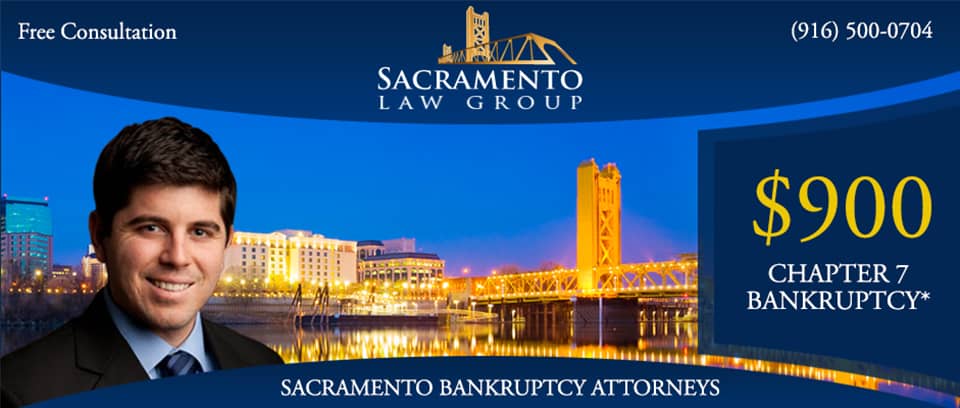Stop Foreclosure With Chapter 13 Bankruptcy

Adam Garcia
Bankruptcy Attorney
(916) 500-0704
Mon – Sat
8 AM – 6 PM
There are many myths surrounding foreclosure defense. Some online resources instruct borrowers to pursue a “produce the note” defense in which the lender must produce the promissory note evidencing its right to foreclose. However, as borrowers learn later on after much time and expense, “it is well-established that non-judicial foreclosures can be commenced without producing the original promissory note.” Chilton v. Federal Nat. Mortgage Ass’n. Other borrowers attempt to set aside the Trustee’s sale by showing an irregularity in the procedure identified in Cal Civ Code §§ 2920-2924 and a grossly inadequate sales price. Unfortunately, many of these foreclosure defense strategies prove ineffective in stopping the impending foreclosure sale. As a result, many homeowners facing foreclosure file for chapter 13 bankruptcy to stop foreclosure and save their homes by repaying late payments over several years.
Chapter 13 Bankruptcy Is The Answer
Chapter 13 bankruptcy is the only way to force your lender to accept a repayment plan that allows you to keep your home. Think of chapter 13 bankruptcy as a super-remedy when facing foreclosure. Instead of negotiating with a lender who ultimately plans on taking your home, you are forcing the lender to accept your deficient payments over several years and stop the foreclosure process as soon as your chapter 13 bankruptcy petition is electronically filed with the court. Yes, you will have to repay your deficient payments in chapter 13 bankruptcy, but in exchange, you will get to keep your home.
Chapter 13 Bankruptcy Stops Foreclosure Immediately
Once our foreclosure lawyer electronically files your bankruptcy petition with the Sacramento division of the U.S. Bankruptcy Court a prohibition against collection activities arises by operation of law. This prohibition is known as the “automatic stay” as the prohibition stays most collection activities and arises automatically once a bankruptcy petition is filed with the court. Regarding foreclosure, the automatic stay will stop an impending Trustee’s sale. For example, if the foreclosure sale is scheduled for Tuesday but you file for chapter 13 bankruptcy on Monday, the foreclosure sale on Tuesday will not occur. The purpose of the automatic stay is to prevent the inequitable distribution of your property, which is actually property of the “bankruptcy estate.” The result of the automatic stay is that your creditors must participate in the bankruptcy system rather than resort to self-help collection methods like foreclosure.
The bottom line is that chapter 13 bankruptcy can stop your impending foreclosure. If your home is in foreclosure don’t wait until the last minute to call a bankruptcy attorney.
Repaying Late Payments While You Keep Your Home
Chapter 13 bankruptcy is not a magic wand that eliminates your debt without any work or expense. Rather, it’s a powerful tool for repaying secured debts while you keep your property. One feature of chapter 13 bankruptcy is that you can cure defaults on long-term debts while retaining possession of property. Regarding your home in foreclosure, you can keep your home while you repay the late mortgage payments. This option is not available in chapter 7 bankruptcy. In chapter 7 bankruptcy if you are late on your mortgage payments your lender will eventually be able to foreclose on your home. With that in mind, many borrowers in foreclosure turn to chapter 13 bankruptcy to save their homes from foreclosure.
Eliminating The Second Mortgage in Chapter 13 Bankruptcy
One advantage of chapter 13 bankruptcy which is rapidly disappearing with rising home prices is the ability to eliminate a second mortgage. In chapter 13 bankruptcy you can strip-off (remove) a second mortgage if the value of your home is less than the amount owed on the first mortgage. For example, if your home is worth 100k but you owe 150k on the first mortgage and 50k on the second mortgage, you can classify the second mortgage as unsecured debt in your chapter 13 repayment plan and discharge it with other unsecured debts. Once discharged the second mortgage will no longer be a secured debt on your home; in fact, you will no longer owe anything on the second mortgage once it’s discharged in chapter 13 bankruptcy. With that said, eliminating the second mortgage in chapter 13 bankruptcy is not an easy process, but the reward can save you tens of thousands of dollars. To learn more about eliminating the second mortgage in bankruptcy and stopping your foreclosure contact our bankruptcy attorney today.
Bankruptcy may be able to save your home from foreclosure. While chapter 7 bankruptcy will stop the foreclosure process for a period of time, chapter 13 bankruptcy will stop the process for a period of years while you bring your payments current, thereby removing yourself from foreclosure.
By Adam Garcia



